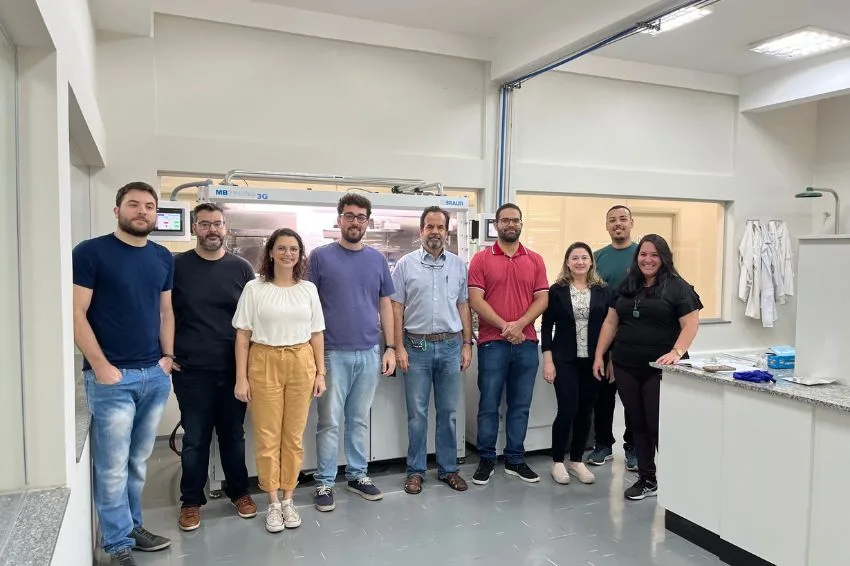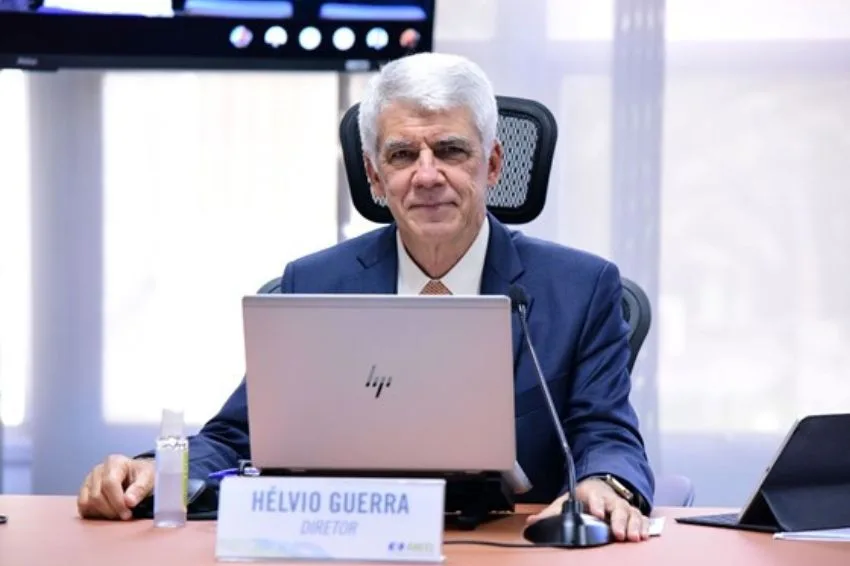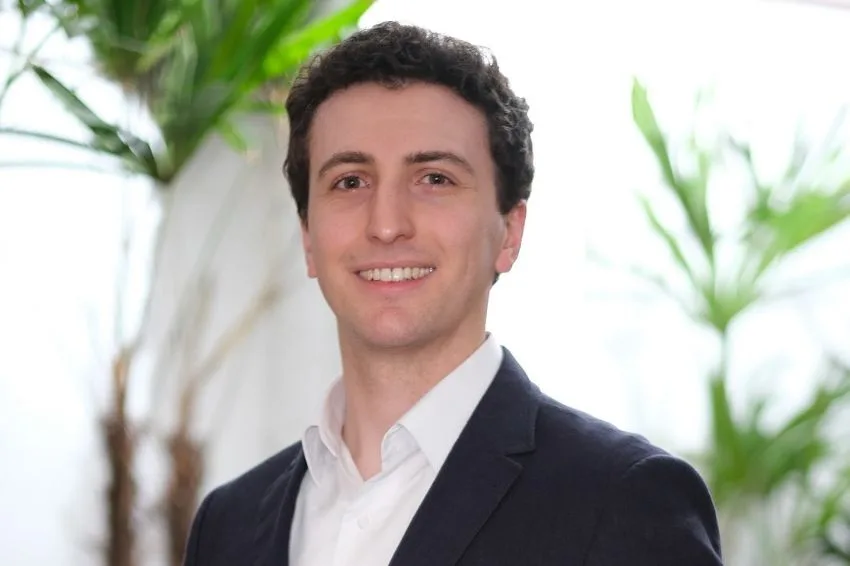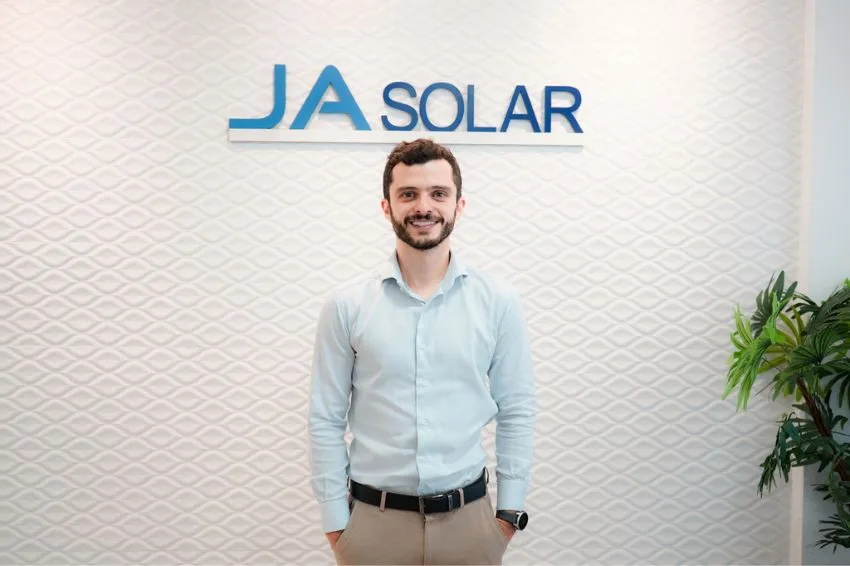André Gellers is the new Country Manager of the inverter manufacturer SMA. The information was given by the company to Canal Solar last week. In an exclusive interview with Solar Channel, the executive told how he began his professional journey in the photovoltaic solar sector in 2015, working as an integrator at the solar projects and installations company Savem.
In addition, he reported other experiences in the photovoltaic market, such as his work at thin film manufacturer Hanergy and Moso Power Supply Technology.
According to Gellers, his inspirations came from his parents who were responsible for shaping his personality and morals, from Ozires Silva, who despite all expectations, created the Brazilian aeronautical industry.
Furthermore, he seeks inspiration from Sister Dulce, who selflessly dedicated her life to helping others, following her heart, and from Elon Musk, who has been pursuing his dreams and has not given up despite the challenges.
Canal Solar: Who is André Gellers? Who inspires you? And what is your professional career like?
André Gellers: I am passionate about sustainability. I have a degree in Business Administration from FGV (Fundação Getúlio Vargas). I started my career in auditing and then moved into retail. I lived in England for three years and at the turn of the millennium I started seeing renewable energy and it really affected me. After a few years, I entered the solar sector and have been working in the photovoltaic market for six years.
Which companies have you worked with in the photovoltaic market?
AG: The beginning of my journey was as an integrator and I am very proud of that. I founded a company in Rio de Janeiro called Savem, where I stayed until 2019. Then I did a quick stint at Hanergy, which is a thin film modules company, then I took over Moso do Brasil, where I stayed until recently. Now, I have another challenge. I started this week as Country Manager at SMA, which is one of the leading companies in photovoltaic solutions in the world. I'm very proud of this situation.
Was your arrival at SMA strategic for the Brazilian photovoltaic market? How do you plan your work in front of the company?
AG: First, it is a dream come true. I have admired SMA since the beginning of my journey. It is a company that has already dedicated 40 years to the sector, creating advanced solutions and taking great care of its customers. I believe this is completely in line with my way of thinking.
The strategy is that we can grow together with Brazil, bringing cutting-edge technology solutions, providing the best value for our customers in the long term and always working on cutting-edge technologies, bringing the latest news and providing full support to customers. All of this is very much in line with how I think services provided to clients should be.
This universal action by SMA, which already has inverters sold in more than 190 countries, is very interesting as it brings a diversity of solutions that we can learn abroad and apply in Brazil, a market that started a little later but still has gigantic potential for accomplish.
How is SMA planning to adapt to changes in the sector regarding social impact?
AG: Cultural and age diversity and adherence to the millennium goals proposed by the UN (United Nations) is an SMA corporate guideline and I am very proud of it. I have been working in the socio-environmental sector for over 15 years, even before the photovoltaic sector, and this brings great intrinsic value to the corporation, both in terms of continuity and sustainability.
Seeing the consolidation of the “ESG Guidelines” (Environmental, Social and Governance), which are the social environment and governance rules in companies, as an issue that was consolidated during the Covid-19 pandemic is a “buzzword” that has become and which was being dammed.
Now companies have to achieve goals because having good corporate governance has become a component of business. SMA had already adhered to these guidelines even before this became a reality in the corporate world and this is very strategic for the company's growth.
Photovoltaic solar energy is one of the biggest generators of jobs. It is a large job-generating sector that brings energy without carbon emissions. It is one of the energy paths to be followed! And talking about sector governance, if we don't have supporting legislation and contracts are respected in the country, Brazil will not be seen as a good place to invest. We have enormous potential to achieve and there is a great desire to apply international resources through investment funds. greenbonus, or even national investors. Therefore, we really need to be careful to create a legal framework that provides security for investors and we support this.
How are you following the progress of PL 5829/19?
AG: I think it is essential that PL 5829/19 is taken to the Plenary immediately and approved. Nowadays we work based on a resolution from ANEEL (National Electric Energy Agency), 482, created by 687, which is a well-written resolution but does not have the force of law and uncertainty hovers over the market, especially with investors. who assess this as a risk.
All of us who work in the sector - industry, distributors and integrators - need to be sure of what they are proposing to the end customer. For this reason, the approval of PL 5829 is important, aiming to provide the necessary legal certainty. It is a very balanced text and I hope we can approve it very soon.
In relation to international markets, what are the main lessons that Brazil can learn and adopt?
AG: We are experiencing an evolution in terms of storage. Storage combined with solar photovoltaic energy makes it possible to solve the problem of intermittency and by solving this problem, I believe that the market can grow ten times more than its potential without storage.
I see the issue of hybrid systems as very relevant for the future of the photovoltaic sector. No professional can fail to understand how hybrid systems work and what value they bring to solar photovoltaic systems. Furthermore, there is integration with electric mobility, which is no longer something for the future, it is a reality. Countries like Norway sell more electric cars than combustion ones and, in Brazil, this will also quickly become the key.
We need to invest a lot in infrastructure for charging electric cars. There is a fantastic market associated with the queen of all energies, which is solar, because if it weren't for the Sun, we wouldn't be here. I see that storage and mobility are two advances for the photovoltaic solar energy segment.
In a recent report released, the International Energy Agency highlights the transition from combustion cars to electric cars, estimating that by 2030 there will be hundreds of thousands of electric cars worldwide. How do you see this goal? Is it achievable?
AG: It's an aggressive goal. European countries have already taken the initiative in this regard and have set deadlines for the production of combustion cars. These affirmative measures are important for achieving goals. The market does not always self-regulate, often an emerging technology needs support in which it needs a start and in this sense. Europe demonstrates a very serious path, in addition to other countries such as Japan and the new environmental policies of the new United States government point to this.
Of course, we can't forget to talk about China, which also has incredible incentives for the adoption of electric cars and is already experiencing reductions in pollution in its cities. For example, Chinese taxi drivers have a huge incentive to use electric cars.
Brazil needs to look abroad and learn from this. The attractiveness of automakers is reduced, we see that due to the recent exit of Ford of Brazil we can no longer count on combustion car manufacturers to be major job generators. The moment has turned.
We will see the consolidation of some alternatives, be it battery-powered cars or hydrogen cells. But in any case, the solar sector will always be combined with electric mobility, contributing to the reduction of pollution levels. This goal can only be achieved through a change in mobility. I am optimistic and believe that this change will be made faster than we imagine.
What message do you highlight for those who are working, or are thinking about starting to work, in the photovoltaic market?
AG: First, I want to congratulate all the professionals in the sector. We are people who believe in a better world! I believe there is a component of us believing that we can do something for the better. Keep believing in this every morning, even in the most difficult days to come, stay positive.
Second point. Sometimes we imagine that just installing the photovoltaic system and the relationship with the customer is over, but that's not true. These are relationships that span many years and your own public image is linked to this. Therefore, always discover ways to deliver more value to your customers.
Third piece of advice: always continue educating yourself. Read about new technologies, about business, take part in courses. And lastly: no one does anything alone. Therefore, establish good, healthy relationships, inside and outside the sector. Build your careers so that when you celebrate your victories, you have someone to call to the party. Create good relationships in the industry and celebrate together!
















